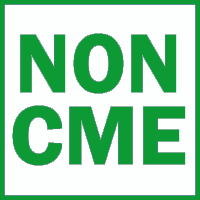Back
Poster Session
RTID-04 - Clinical potential of targeting transforming growth factor beta 2 with OT-101 for post-radiation consolidation in diffuse intrinsic pontine glioma
Friday, November 18, 2022
7:30 PM – 9:30 PM ET
Location: West/Central Hall
.jpg)
Fatih Uckun, MD, PhD
Oncotelic Therapeutics
Agoura Hills, United States- CL
Cynthia Lee, PhD (she/her/hers)
Oncotelic Therapeutics
- VT
Vuong Trieu, PhD
Oncotelic Therapeutics
Agoura Hills, United States
Author(s)
Poster Presenter(s)
Author(s)
Diffuse intrinsic pontine glioma (DIPG) in children has a dismal prognosis with a median overall survival (OS) of 10 months and a 2-year overall survival rate of < 10% after standard radiation therapy. Chemotherapy does offer clinically meaningful benefits. Therefore, there is an urgent need for therapeutic innovations for treatment of pediatric DIPG. High-grade glioma cells, including pediatric glioblastoma and DIPG cells have been shown to produce transforming growth factor beta 2 (TGFB2) which has been implicated both as promoter of glioma cells and as a key contributor to the T-cell hyporesponsiveness of the tumor microenvironment (TME) towards glioma cells. OT-101 is a first-in-class RNA therapeutic designed to abrogate the immunosuppressive and tumor promoting actions of TGF-B2. At low micromolar concentrations, OT-101 reduces the TGFB2 secretion by human glioma cells, blocks their proliferation as well as migration, and restores the anti-glioma cytolytic function of patient-derived T-cells. In a Phase 2 clinical study, intracerebrally applied OT-101 administered via convection-enhanced delivery showed promising single agent activity in Recurrent/Refractory (R/R) high-grade glioma (HGG) (Uckun et al., Cancers. 2019 28;11(12):1892). The intrathecal administration of antineoplastic drugs directly in the CSF allows to bypass the selective filter of BBB, achieving significant concentrations of the antineoplastic agents in CSF, while reducing the likelihood of systemic toxicity. Informed by favorable safety pharmacology studies of intrathecally delivered OT-101 in rabbits and primates and encouraged by its single agent activity in adult patients with HGG, we decided to embark upon a multi-center, two-part, randomized Phase 1-2 study of OT-101 in pediatric patients with DIPG. Multiple doses of OT-101 will be administered after completion of radiation therapy as intrathecal bolus injections. The study is designed to determine: 1) the maximum tolerated dose (MTD) or recommended Phase 2 dose (RP2D) of OT-101, and 2) its efficacy in children with DIPG.

